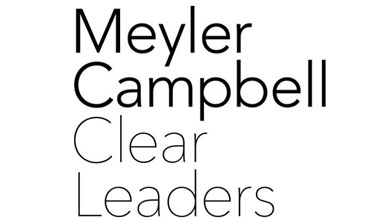Curated by: The IOC Team
Director's Corner
-
A Habit of Trust
We know trust is crucial in establishing deep connectivity within countries, companies, and teams that function well. Additionally, trust feels good: it increases our sense of well being.
But trust isn't just about "feeling good", it creates a competitive advantage. We know that companies with higher employee engagement on average have a 22% increase in profitability. Countries with citizens who are considered more trustworthy perform better in the global economy. We would all prefer to live in a higher trust culture, work for higher trust organizations, and be considered higher trust individuals.
So how do we make trust happen? We answer this question and many more in this month's webinar with trust expert, neuroscientist Paul Zak, author of The Trust Factor: The Science of Creating High-Performance Companies.
One key finding from Paul Zak's work is that trust begets trust. So, in order to establish a culture of trust, there must be an individual who is willing to take the first leap. To create trust one must engage in trustworthy action that benefits another person without knowing if this action will be reciprocated.
The leap of faith that first induces our brains to trust another may appear to be a Catch-22: one must first trust to create trust. Yet, this also shows that trust is a virtuous cycle. If one acts with a clear intention to be trustworthy, then other individuals are more likely to reciprocate. Trust can then expand outward, from the action of one individual, into a network created by many. A virtuous circle of trust leads to cohesive teams, more inclusive communities, an overall sense of belonging - and ultimately higher performance from everyone.
So as we face a world that can feel at times very divisive, trust-building is key to fostering collaboration, healing, and moving us forward. As coaches, we are on the front lines with our clients. And as role models for intentions, communications, and behaviors that nurture wellness and integrity, we must remember that growing trust requires us to go first. Let's take the lead - and help grow leaders that reinforce trust and bring psychological safety into the communities where we work. In so doing, we can have an exponentially positive impact on the world
We hope that you can join us in our upcoming webinar with Paul Zak. And we hope you also join us in going first and taking the leap in offering kindness to others and building a culture of trust.
The IOC Team
Featured Research
-
Share /
Because the pandemic was unpredictable in so many ways and anxiety levels were high among many providers and workers, we recognized the importance of strengthening relationships and generating solutions and new ideas from the front lines.
-
Share /
Recently (2019), authors Jonathan Passmore and Yi-Ling Lai capture the history of defining coaching in their article “Coaching Psychology: Exploring definitions and research contribution to practice,” published in the journal - International Coaching Psychology Review. Today’s dose explores this paper, while integrating other sources, and invites coaches to consider the nature of coaching and coaching psychology with fresh eyes, as well as opportunities to expand coaching education.
-
Share /
In the past two decades of stretching, doubting, and exploring leadership development, a disruptive narrative has emerged, that “many leadership development programs had little impact and perhaps the whole leadership development industry was failing.” In their August 2020 article Developing the Theory and Practice of Leadership Development: A Relational View, authors Cynthia McCauley and Charles Palus at the Center for Creative Leadership (CCL) go on to say:
- leadership development focuses on changing behavior rather than addressing the underlying mindsets that are at the root of problematic behavior
- the field is leader-centric, ignoring the power shifts in society that elevates followers
- leadership effectiveness is assessed primarily via individual competencies or job performance; they rarely include collective concerns like work group climate or team performance
- senior executives do not make necessary changes in organizational systems to support broad individual change
- the slow-moving hierarchical system with compartmentalized expertise isn’t adequate for today’s complex challenges which call for reinvention of organizations
Among the most disruptive ideas that could drive a leap in leadership development is that “leaders are not the fundamental source of leadership, but that leadership is an emergent property of interactions among people working together.” This perspective is described by the authors as “relational view of leadership.” It democratizes leadership – leaders are active participants in leadership and are not “containers” of leadership. The focus of leadership development is then not on the individual leaders, but on the team, work groups, and organization.
Developing the theory and practice of leadership development: A relational view
Cynthia D.McCauley, Charles J.Palus
Abstract: Organizations are demanding leadership development that is more sensitive to context and supportive of organizational transformation, and critics of current leadership development practices claim they are too narrowly construed to yield meaningful results. Relational views of leadership may be the disruptive idea that helps reconstruct leadership development in ways that meets these concerns.
To better understand how these relational views can impact the practice of leadership development, we examined the use a specific relational framework in one leadership development organization. We found that leadership development professionals used the framework to convey a relational point of view on leadership to their participants, to facilitate collective identification and action on leadership issues, to develop leadership by focusing on leadership culture, and to enable the democratization of leadership development.
We use these findings to advance a constructive-developmental perspective on the development of leadership development.
Videos
-
Share /
It is more important than ever to learn how to identify burnout and especially, how to buffer against it. Drawing from her deep knowledge of human behavior, Stanford University-trained psychologist and Board Certified Leadership Coach, Dr. Jacinta M. Jiménez, will deliver a presentation to reveal 3 key science-backed steps to address burnout in uncertain times.
Her Book: The Burnout Fix
-
Share /
For this webinar, the team of coaches and diabetes specialists will present the study rationale, new data, and conclusions from the first study to examine the impact of coaching for parents of children with type 1 diabetes. Type 1 diabetes is a lifelong condition requiring intensive daily medical management, family support, and ongoing learning. It is imperative to promote positive health outcomes in this population by facilitating improved self-management skills during the childhood and adolescent years. This study was a randomized controlled trial exploring the effect of a bi-weekly 6-month telephone coaching intervention for parents of children with T1D on the primary outcome of the children’s health-related quality of life.
-
Share /
This highly interactive webinar covers the phenomenon of "silencing" in the executive suite — highlighting key original research findings; Dr. Carrie Arnold will review strategies successful people have used to recover and lead with voice currency. The silenced leader is a paradox as leadership implies a sense of voice and efficacy yet this can hardly be done if a leader feels silenced. Dr. Arnold’s research suggests there are many sitting in executive and senior-leader roles feeling and experiencing this exact phenomenon....
Sponsor
-

Meyler Campbell trains senior people to coach in organizations. Our clients fall broadly into two groups: senior leaders, managers and HR professionals who want to coach well as part of their role; and people from business looking to transition to a portfolio coaching life.
Our fully accredited Mastered Programme (formerly known as the Business Coach Programme™) has an unrivaled reputation in the market for its business focus, bespoke approach, and results. Businesspeople and professionals from a vast range of backgrounds, together with many of the world’s most successful freelance coaches, have trained with us. For many organizations, Meyler Campbell is the first port of call when they want to develop internal coaching capability, and a trusted name when hiring externals.
The Business Coach Programme has a real practical bent, plus depth in its theoretical grounding. To keep our clients at the leading edge, we commission and publish research, link with leading centers of excellence around the world, and run a hugely active Alumni/CPD Programme, with additional learning options including the thought-provoking Psychology Distilled course, Masterclasses with global experts, and short practice-focused events such as Coaching Fishbowls.
Meyler Campbell www.meylercampbell.com/
